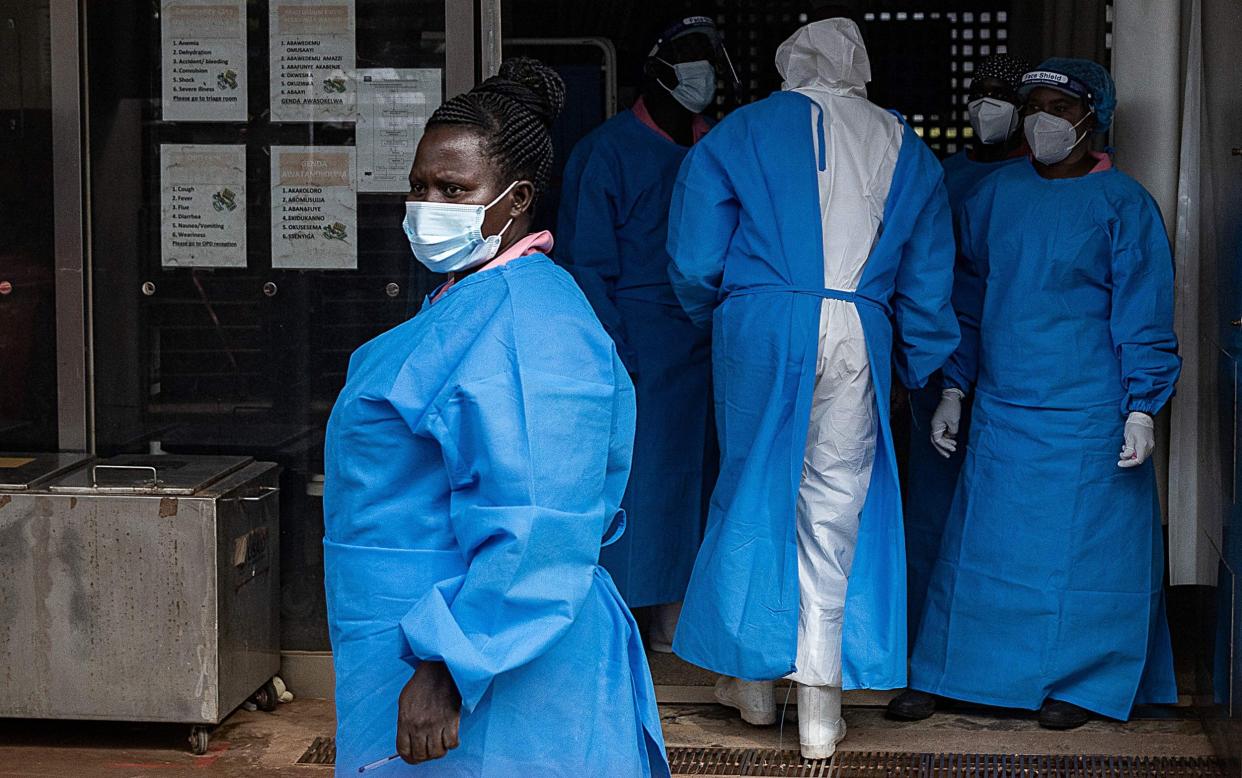Fears grow over mystery illness that has killed at least 14 people in Uganda

African health experts are urgently investigating a mystery disease outbreak in Uganda which has killed at least 14 people and seen some 40 fall ill.
The mystery disease is being probed by the Africa Centres for Disease Control and Prevention (Africa CDC) and World Health Organisation (WHO) after doctors have so far been unable to identify it.
Those struck by the outbreak in Uganda’s Kyotera district have developed rashes on their skin and some had swollen limbs.
The disease appears to pass from animals to humans, and medics had at first suspected anthrax, a bacterial infection typically infecting cows, sheep, and goats.
But tests have now ruled out anthrax, said Dr Jean Kaseya, director-general of Africa CDC.
Fears over traditional healers
He said: “We have a disease killing people, but we don’t know. We call it an unknown disease.
“But what we know is it is coming from animals, because at the same time in the same area, animals are dying.
“We conducted some studies, we were thinking towards anthrax, but it’s not anthrax, but for sure there is a linkage between animals and humans.”
He went on: “We are working together to continue further investigations.”
The mystery disease is thought to have affected around 40 people in recent weeks, in the villages of Kyamayembe, Bugera, and Nakatoogo in Bwamijja Parish, and Mabaale, Kabutooke and Kyanika in Kyanika Parish.
Regina Nakalyango, a local councillor representing Kabira sub-county, told the Daily Monitor, a Ugandan daily, that cases were rising daily and many had lost hope of surviving.
She said: “People in our villages are living in fear due to the impact of this strange disease.
“The worst part is they believe in traditional healing since the medics have also failed to find answers to the deadly disease.”

Dr Edward Muwanga, the district health officer, told the paper the disease may be cellulitis, a common bacterial skin infection that causes redness, swelling, and pain.
If untreated, it can spread and cause serious health problems.
He said: “We are still waiting for the next set of results, but looking at the signs and symptoms, it is possible that it is cellulitis killing the people,” he said.
In July last year, cellulitis was blamed for another strange disease, which killed 13 residents in Kijonjo Parish, Kasasa sub-county.
International and local health bodies are scaling up disease surveillance to spot new infections and outbreaks in Africa.
The continent’s poor healthcare systems and its exposure to deadly pathogens that jump from animals to humans, such as Ebola and Marburg viruses, have made it a focus of pandemic prevention.
Protect yourself and your family by learning more about Global Health Security

